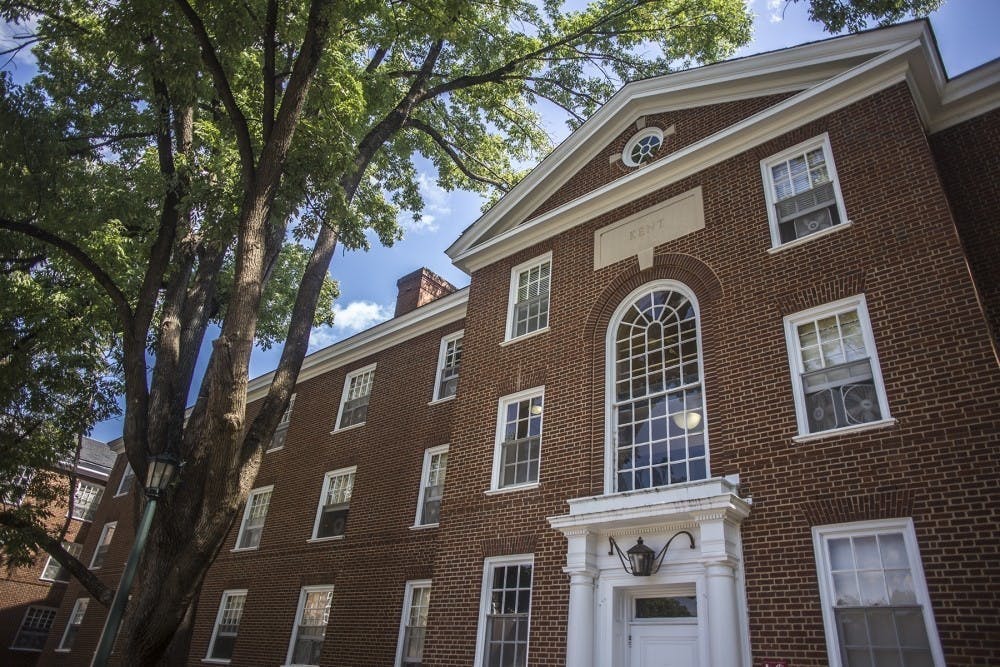U.Va.’s Housing and Residence Life is often regarded as an elite organization with “well over 400 [resident advisor] applications” for “upwards of 240 students” to be selected. As someone who has been a resident advisor the past five semesters, I intimately understand the system. I also understand where the system fails and how it failed me when I was removed from the RA position by HRL this past semester.
I applied as an RA knowing that I wasn’t like most — I couldn’t knit or bake cookies. Nevertheless, I wanted to be an advocate for minority students like myself who didn’t see a space for themselves at the University. Since my acceptance, I’ve been an RA to 65 incredible young men who I’ll always recognize as “my guys.” Unfortunately, this past semester, HRL terminated me for going to a party where there was drinking on a night that I was on-call. I sincerely regret my actions and don’t absolve myself of any blame. However, HRL’s process in handling my case was sloppy, self-serving and contradictory to their own words.
According to their website, HRL prides itself in student self-governance. Yet, when my senior resident advisor — a student — submitted the incident as a low-level report, HRL intervened and elevated the report into a panel-reviewed hearing. It wasn’t until my removal that HRL decided to recommit itself to the tenant of student self-governance by having the student chair of the appraisal board make the call to fire me. It’s noteworthy that this student neither has a vote in the hearing nor any influence in RA hiring. However, Andrew Petters, associate dean of students and director of residence life, who had a vote in my hearing, still handed the student the phone.
My SR and I both submitted appeals, but to our surprise HRL practices a unilateral, biased appeal process. Both letters went to Executive Director of HRL Gay Perez whose direct relationship with Dean Petters compromises her impartiality. She spoke in-person with individuals on the hearing panel about the incident, but I was never called to speak with her.
In addition, HRL reserves the right for the appraisal board “to remove RAs from the program if it is deemed that they are not capable of continuing in their position.” Of the nearly two and a half years I spent serving as an RA, this was the first time any SR found any negligence of my duties demanding a citation. For four consecutive semesters, all of my resident and supervisor evaluations averaged above a 9 out of 10. Throughout this process and to this day, I never sought to avoid accountability but rather to be reprimanded in a manner proportionate to my first and only failure to meet expectations.
The issue lies with how the process was handled. As a low-income student, losing my housing and benefits immediately left me in an unsafe position. HRL pressured me to live in expensive alternative housing options and gave me less than a week to move out, making me effectively homeless. I desperately reached out to friends looking for a place to crash short-term while packing up my home.
During my stressful housing search, a friend graciously offered a temporary place to stay off-Grounds. To acclimate, I worked extra hours at my two jobs while attending classes. Yet the very same day HRL fired me, they sent me an email asking me to check on a resident of concern. This stood in direct conflict with the reason I was removed from the position — an apparent concern that I was incapable of fulfilling my role as an RA. At this point I was no longer an RA, but I was most attuned to my residents’ personal issues and HRL needed me for that.
To new RAs applying this next cycle, I tell my story to give you an educated and honest account about the system you’re preparing to enter. Ultimately, the system is structured to benefit HRL, and while I take responsibility for my actions, there were many aspects of my trial, appeal and removal process that demand improvement. Your mental health as an RA and your housing can be robbed from you without due process and without HRL considering the unintended consequences this will have on you and your security.
To current staffers — step outside the “wokeness” of HRL and genuinely engage in changing the communities that you serve in lasting and meaningful ways.
To current and future SRs — I caution you that HRL will mask their self-serving motives by falling back on “student self-governance,” but ultimately Dean Petters and his administration will have the last say on any meaningful decision.
To HRL — find ways to support the RAs that you not only hire but also those you fire to make their transitions smoother. Abide by the core values that you set and think critically about what it means to remove an RA of an otherwise unblemished 2 ½ years of service in favor of a new RA with little experience or training. Think critically about how my experience falls in stark contrast with the values you proport and make improvements.
Lastly, as a student who remains an RA at heart — to my guys — I love you, and I hope that you make your next three years your own by continuing to challenge and improve this University.
Nathan Stewart is a fourth-year in the Curry School of Education.







